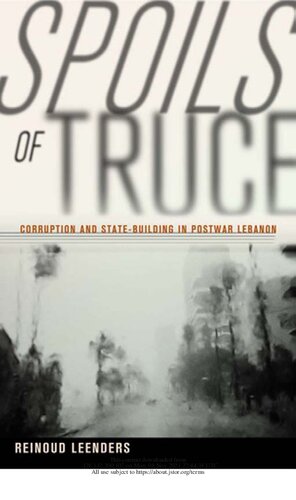

Most ebook files are in PDF format, so you can easily read them using various software such as Foxit Reader or directly on the Google Chrome browser.
Some ebook files are released by publishers in other formats such as .awz, .mobi, .epub, .fb2, etc. You may need to install specific software to read these formats on mobile/PC, such as Calibre.
Please read the tutorial at this link: https://ebookbell.com/faq
We offer FREE conversion to the popular formats you request; however, this may take some time. Therefore, right after payment, please email us, and we will try to provide the service as quickly as possible.
For some exceptional file formats or broken links (if any), please refrain from opening any disputes. Instead, email us first, and we will try to assist within a maximum of 6 hours.
EbookBell Team

4.4
22 reviewsIn Spoils of Truce, Reinoud Leenders documents the extensive corruption that accompanied the reconstruction of Lebanon after the end of a decade and a half of civil war. With the signing of the Ta’if peace accord in 1989, the rebuilding of the country’s shattered physical infrastructure and the establishment of a functioning state apparatus became critical demands. Despite the urgent needs of its citizens, however, graft was rampant. Leenders describes the extent and nature of this corruption in key sectors of the Lebanese economy and government, including transportation, health care, energy, natural resources, construction, and social assistance programs.
Exploring in detail how corruption implicated senior policymakers and high-ranking public servants, Leenders offers a clear-eyed perspective on state institutions in the developing world. He also addresses the overriding role of the Syrian leadership’s interests in Lebanon and in particular its manipulation of the country’s internal differences. His qualitative and disaggregated approach to dissecting the politics of creating and reshaping state institutions complements the more typical quantitative methods used in the study of corruption. More broadly, Spoils of Truce will be uncomfortable reading for those who insist that power-sharing strategies in conflict management and resolution provide some sort of panacea for divided societies hoping to recover from armed conflict.